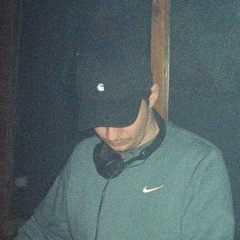От чего страдал обездоленный в эпоху рабовладения, феодализма и капитализма? Он страдал от несоответствия своего бытия тому, что в его эпоху можно было бы назвать сколько-нибудь достойным способом существования.
Например, он страдал от того, что был вынужден проживать в условиях большой скученности, грязи, хронического недоедания, неспособности восстанавливать свои силы в условиях слишком длительного и слишком напряженного труда.
А еще он страдал от насилия со стороны своих хозяев, от игнорирования этими хозяевами его права на формирование устойчивой семьи, члены которой не могут быть разлучены, например, при продаже хозяином принадлежавших ему обездоленных, что зачастую делалось не только в рамках классического рабовладения, но и в рамках феодального крепостничества.
Те, кто сталкивался с такими страданиями людей, имели дело с чем-то крайне очевидным и предельно вопиющим. Например, с варварскими избиениями, чудовищным по степени изнурительности трудом, холодом и голодом, возмутительной антисанитарией, вопиющей несвободой, навязываемой несчастным.
Тому, кто мог и хотел сострадать обездоленным, не надо было напрягать умственные извилины, дабы доказать себе и другим очевидно нечеловеческий характер этих страданий. А значит, и очевидно людоедский характер тех обитателей социального рая, которые строят его на таком нечеловеческом страдании обездоленных социальных низов.
Почему я заостряю на этом внимание? Да потому, что теперь на Западе, да и в России тоже, страдания обездоленного часто имеют другой характер. Поди докажи себе, да и этому обездоленному тоже, что он страдает от некоего отчуждения, то есть:
-от неспособности восходить;
-от неспособности сформироваться как личность;
-от неспособности соединиться через культуру с историей своего народа и человечества;
-от неспособности творить и полноценно, по-человечески воспринимать сотворенное другими;
-от неспособности отличать добро от зла;
-от неспособности по-настоящему любить;
-от неспособности мечтать, осуществлять мечту, продлевать свое мечтание, воспитывая детей;
-от неспособности жить сообразно своим собственным ценностям;
-от неспособности эти ценности отстаивать и даже этими ценностями обладать.
Ты начнешь об этом говорить обделенному, а он тебе ответит, что ему это всё и не нужно вовсе. Что у него есть всё, что нужно: какая-то квартира, какая-то еда, какая-то одежда, какие-то развлечения. И что ты лезешь не в свое дело, настаивая на том, что он обделен в главном, цитируя ему какого-то француза Экзюпери, утверждающего, что он страдает от того, что в нем убит Моцарт. Кто такой этот Моцарт? Чем он так хорош? Почему надо так страдать от того, что он в тебе убит?
Мне скажут, что большинство обездоленных на планете страдает от того же очевидного вопиющего неблагополучия, от которого обездоленные страдали во все предыдущие века и тысячелетия.
Не спорю. Но на исторической или постисторической авансцене сейчас находится не это очевидное страдание от очевидного неблагополучия, а некое расчеловечивание, осуществляемое в формах, не вызывающих у тех, кто этому подвергается, прямого и яростного недовольства, а значит, и некоего вопрошания: «За что, скажите, нас подвергают подобной муке?»
Конечно, и в эпоху очевидности вопиющего гнета жертвы этого гнета далеко не всегда роптали. Русская рабочая слобода, в которой живет герой горьковского произведения «Мать» Павел Власов, не ропщет против того, во что ее погрузили. Да и русские крестьяне, погруженные в чудовищное неблагополучие и лицезрящие жизнь своих бар, вопиющим образом отличающуюся от этого неблагополучия, тоже не становились автоматически на путь протеста против своего удела. И даже расправлялись с теми городскими интеллигентами из «Народной воли», которые приезжали в деревню, пытаясь возбудить в крестьянах чувство протеста.
Страшную цену платили «выродки», нисходящие в социальный ад, за то, чтобы отдельные обитатели этого ада вставали на путь протеста, стремясь обеспечить выход из ада для себя и всех обездоленных.
Но эти «выродки», как минимум, располагали в качестве мотива своего поведения картиной массовых очевидных страданий от голода, холода, унизительной несвободы, вопиющего насилия.
Теперь всё это спрятано за кулисами третьего и четвертого мира, где, по мнению хозяев сцены, и надлежит пребывать всяким там африканцам, латиносам, прочим «отбросам протекающего процесса».
А в эпоху Маркса именно такое страдание было явлено обитателям не только глубокой европейской провинции, но и обитателям европейских столиц. Они даже при всем желании не могли этого не увидеть. А уж как отнестись к увиденному — это другой вопрос. Не только в XIX веке, когда Маркс вырабатывал стратегию борьбы обездоленных против порабощения капиталом, но и вплоть до второй половины XX века именно вопиющие очевидные формы страдания обездоленных были явлены миру во всей их непреложности. Это-то и называлось социальным адом.
Продолжение: https://rossaprimavera.ru/article/2358d4ef
Например, он страдал от того, что был вынужден проживать в условиях большой скученности, грязи, хронического недоедания, неспособности восстанавливать свои силы в условиях слишком длительного и слишком напряженного труда.
А еще он страдал от насилия со стороны своих хозяев, от игнорирования этими хозяевами его права на формирование устойчивой семьи, члены которой не могут быть разлучены, например, при продаже хозяином принадлежавших ему обездоленных, что зачастую делалось не только в рамках классического рабовладения, но и в рамках феодального крепостничества.
Те, кто сталкивался с такими страданиями людей, имели дело с чем-то крайне очевидным и предельно вопиющим. Например, с варварскими избиениями, чудовищным по степени изнурительности трудом, холодом и голодом, возмутительной антисанитарией, вопиющей несвободой, навязываемой несчастным.
Тому, кто мог и хотел сострадать обездоленным, не надо было напрягать умственные извилины, дабы доказать себе и другим очевидно нечеловеческий характер этих страданий. А значит, и очевидно людоедский характер тех обитателей социального рая, которые строят его на таком нечеловеческом страдании обездоленных социальных низов.
Почему я заостряю на этом внимание? Да потому, что теперь на Западе, да и в России тоже, страдания обездоленного часто имеют другой характер. Поди докажи себе, да и этому обездоленному тоже, что он страдает от некоего отчуждения, то есть:
-от неспособности восходить;
-от неспособности сформироваться как личность;
-от неспособности соединиться через культуру с историей своего народа и человечества;
-от неспособности творить и полноценно, по-человечески воспринимать сотворенное другими;
-от неспособности отличать добро от зла;
-от неспособности по-настоящему любить;
-от неспособности мечтать, осуществлять мечту, продлевать свое мечтание, воспитывая детей;
-от неспособности жить сообразно своим собственным ценностям;
-от неспособности эти ценности отстаивать и даже этими ценностями обладать.
Ты начнешь об этом говорить обделенному, а он тебе ответит, что ему это всё и не нужно вовсе. Что у него есть всё, что нужно: какая-то квартира, какая-то еда, какая-то одежда, какие-то развлечения. И что ты лезешь не в свое дело, настаивая на том, что он обделен в главном, цитируя ему какого-то француза Экзюпери, утверждающего, что он страдает от того, что в нем убит Моцарт. Кто такой этот Моцарт? Чем он так хорош? Почему надо так страдать от того, что он в тебе убит?
Мне скажут, что большинство обездоленных на планете страдает от того же очевидного вопиющего неблагополучия, от которого обездоленные страдали во все предыдущие века и тысячелетия.
Не спорю. Но на исторической или постисторической авансцене сейчас находится не это очевидное страдание от очевидного неблагополучия, а некое расчеловечивание, осуществляемое в формах, не вызывающих у тех, кто этому подвергается, прямого и яростного недовольства, а значит, и некоего вопрошания: «За что, скажите, нас подвергают подобной муке?»
Конечно, и в эпоху очевидности вопиющего гнета жертвы этого гнета далеко не всегда роптали. Русская рабочая слобода, в которой живет герой горьковского произведения «Мать» Павел Власов, не ропщет против того, во что ее погрузили. Да и русские крестьяне, погруженные в чудовищное неблагополучие и лицезрящие жизнь своих бар, вопиющим образом отличающуюся от этого неблагополучия, тоже не становились автоматически на путь протеста против своего удела. И даже расправлялись с теми городскими интеллигентами из «Народной воли», которые приезжали в деревню, пытаясь возбудить в крестьянах чувство протеста.
Страшную цену платили «выродки», нисходящие в социальный ад, за то, чтобы отдельные обитатели этого ада вставали на путь протеста, стремясь обеспечить выход из ада для себя и всех обездоленных.
Но эти «выродки», как минимум, располагали в качестве мотива своего поведения картиной массовых очевидных страданий от голода, холода, унизительной несвободы, вопиющего насилия.
Теперь всё это спрятано за кулисами третьего и четвертого мира, где, по мнению хозяев сцены, и надлежит пребывать всяким там африканцам, латиносам, прочим «отбросам протекающего процесса».
А в эпоху Маркса именно такое страдание было явлено обитателям не только глубокой европейской провинции, но и обитателям европейских столиц. Они даже при всем желании не могли этого не увидеть. А уж как отнестись к увиденному — это другой вопрос. Не только в XIX веке, когда Маркс вырабатывал стратегию борьбы обездоленных против порабощения капиталом, но и вплоть до второй половины XX века именно вопиющие очевидные формы страдания обездоленных были явлены миру во всей их непреложности. Это-то и называлось социальным адом.
Продолжение: https://rossaprimavera.ru/article/2358d4ef
What did the disadvantaged person suffer from during the era of slavery, feudalism and capitalism? He suffered from the inconsistency of his being with what, in his era, could be called any worthy way of being.
For example, he suffered from the fact that he was forced to live in conditions of great overcrowding, dirt, chronic malnutrition, inability to recuperate in conditions of too long and too stressful work.
And he also suffered from violence from his masters, from ignorance by these masters of his right to form a stable family, whose members cannot be separated, for example, when the owner sold his dispossessed, which was often done not only within the framework of classical slavery, but also within the framework of feudal serfdom.
Those who have faced such human suffering were dealing with something extremely obvious and utterly blatant. For example, with barbaric beatings, labor monstrous in the degree of exhausting, cold and hunger, outrageous unsanitary conditions, blatant lack of freedom imposed on the unfortunate.
Those who could and wanted to sympathize with the disadvantaged did not have to strain their mental convolutions in order to prove to themselves and others the obviously inhuman nature of these sufferings. This means that the cannibalistic nature of those inhabitants of the social paradise, who build it on such inhuman suffering of the disadvantaged social lower classes, is also evident.
Why am I focusing on this? Because now in the West, and in Russia too, the suffering of the disadvantaged often has a different character. Go prove to yourself, and to this disadvantaged man too, that he suffers from some kind of alienation, that is:
-from inability to ascend;
-from the inability to form as a person;
-from the inability to connect through culture with the history of their people and humanity;
-from the inability to create and fully, humanly perceive what others have created;
-from the inability to distinguish good from evil;
-from the inability to truly love;
-from an inability to dream, to fulfill a dream, to prolong one's dream by raising children;
-from the inability to live in accordance with their own values;
- from the inability to defend these values and even possess these values.
You will start talking about this to the disadvantaged, and he will answer you that he does not need all this at all. That he has everything he needs: some apartment, some food, some clothes, some kind of entertainment. And that you are meddling in your own business, insisting that he is deprived of the main thing, quoting to him some Frenchman Exupery, who claims that he suffers from the fact that Mozart was killed in him. Who is this Mozart? Why is he so good? Why is it necessary to suffer so much from the fact that he is killed in you?
I will be told that the majority of the disadvantaged on the planet suffer from the same obvious and egregious ill-being that the disadvantaged have suffered in all previous centuries and millennia.
I do not argue. But on the historical or post-historical proscenium now there is not this obvious suffering from obvious ill-being, but a kind of dehumanization, carried out in forms that do not cause direct and fierce discontent among those who are exposed to this, and therefore, some kind of questioning: “Why, tell me are we being subjected to similar torment? "
Of course, even in the era of the obviousness of the blatant oppression, the victims of this oppression did not always grumble. The Russian workers' settlement, in which Pavel Vlasov, the hero of Gorky's Mother, lives, does not grumble against what she was immersed in. Yes, and Russian peasants, immersed in monstrous trouble and contemplating the life of their bar, blatantly different from this trouble, also did not automatically take the path of protest against their lot. And they even cracked down on those urban intellectuals from "Narodnaya Volya" who came to the village, trying to arouse a feeling of protest in the peasants.
A terrible price was paid by "geeks" descending into social hell, for the fact that individual inhabitants of this hell embark on the path of protest, seeking to provide a way out of hell for themselves and all the disadvantaged.
But these "geeks", at least, had as a motive for their behavior a picture of massive obvious suffering from hunger, cold, humiliating lack of freedom, and outrageous violence.
Now all this is hidden behind the scenes of the third and fourth worlds, where, in the opinion of the owners of the stage, all Africans, Latinos, and other "scum of the ongoing process" should stay there.
And in the era of Marx, just such suffering was manifested not only to the inhabitants of a deep European province, but also to the inhabitants of European capitals. Even with all their desire, they could not fail to see it. And how to relate to what he saw is another question. Not only in the 19th century, when Marx was developing a strategy for the struggle of the dispossessed against the enslavement of capital, but up to the second half of the 20th century, it was the blatant obvious forms of suffering of the dispossessed that were revealed to the world in all their immutability. This is what was called social hell.
Continuation: https://rossaprimavera.ru/article/2358d4ef
For example, he suffered from the fact that he was forced to live in conditions of great overcrowding, dirt, chronic malnutrition, inability to recuperate in conditions of too long and too stressful work.
And he also suffered from violence from his masters, from ignorance by these masters of his right to form a stable family, whose members cannot be separated, for example, when the owner sold his dispossessed, which was often done not only within the framework of classical slavery, but also within the framework of feudal serfdom.
Those who have faced such human suffering were dealing with something extremely obvious and utterly blatant. For example, with barbaric beatings, labor monstrous in the degree of exhausting, cold and hunger, outrageous unsanitary conditions, blatant lack of freedom imposed on the unfortunate.
Those who could and wanted to sympathize with the disadvantaged did not have to strain their mental convolutions in order to prove to themselves and others the obviously inhuman nature of these sufferings. This means that the cannibalistic nature of those inhabitants of the social paradise, who build it on such inhuman suffering of the disadvantaged social lower classes, is also evident.
Why am I focusing on this? Because now in the West, and in Russia too, the suffering of the disadvantaged often has a different character. Go prove to yourself, and to this disadvantaged man too, that he suffers from some kind of alienation, that is:
-from inability to ascend;
-from the inability to form as a person;
-from the inability to connect through culture with the history of their people and humanity;
-from the inability to create and fully, humanly perceive what others have created;
-from the inability to distinguish good from evil;
-from the inability to truly love;
-from an inability to dream, to fulfill a dream, to prolong one's dream by raising children;
-from the inability to live in accordance with their own values;
- from the inability to defend these values and even possess these values.
You will start talking about this to the disadvantaged, and he will answer you that he does not need all this at all. That he has everything he needs: some apartment, some food, some clothes, some kind of entertainment. And that you are meddling in your own business, insisting that he is deprived of the main thing, quoting to him some Frenchman Exupery, who claims that he suffers from the fact that Mozart was killed in him. Who is this Mozart? Why is he so good? Why is it necessary to suffer so much from the fact that he is killed in you?
I will be told that the majority of the disadvantaged on the planet suffer from the same obvious and egregious ill-being that the disadvantaged have suffered in all previous centuries and millennia.
I do not argue. But on the historical or post-historical proscenium now there is not this obvious suffering from obvious ill-being, but a kind of dehumanization, carried out in forms that do not cause direct and fierce discontent among those who are exposed to this, and therefore, some kind of questioning: “Why, tell me are we being subjected to similar torment? "
Of course, even in the era of the obviousness of the blatant oppression, the victims of this oppression did not always grumble. The Russian workers' settlement, in which Pavel Vlasov, the hero of Gorky's Mother, lives, does not grumble against what she was immersed in. Yes, and Russian peasants, immersed in monstrous trouble and contemplating the life of their bar, blatantly different from this trouble, also did not automatically take the path of protest against their lot. And they even cracked down on those urban intellectuals from "Narodnaya Volya" who came to the village, trying to arouse a feeling of protest in the peasants.
A terrible price was paid by "geeks" descending into social hell, for the fact that individual inhabitants of this hell embark on the path of protest, seeking to provide a way out of hell for themselves and all the disadvantaged.
But these "geeks", at least, had as a motive for their behavior a picture of massive obvious suffering from hunger, cold, humiliating lack of freedom, and outrageous violence.
Now all this is hidden behind the scenes of the third and fourth worlds, where, in the opinion of the owners of the stage, all Africans, Latinos, and other "scum of the ongoing process" should stay there.
And in the era of Marx, just such suffering was manifested not only to the inhabitants of a deep European province, but also to the inhabitants of European capitals. Even with all their desire, they could not fail to see it. And how to relate to what he saw is another question. Not only in the 19th century, when Marx was developing a strategy for the struggle of the dispossessed against the enslavement of capital, but up to the second half of the 20th century, it was the blatant obvious forms of suffering of the dispossessed that were revealed to the world in all their immutability. This is what was called social hell.
Continuation: https://rossaprimavera.ru/article/2358d4ef
У записи 36 лайков,
7 репостов,
1619 просмотров.
7 репостов,
1619 просмотров.
Эту запись оставил(а) на своей стене Сергей Григорян























































